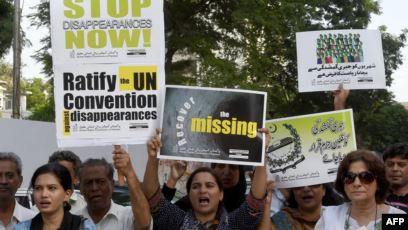
On the occasion of International Day of the Victims of Enforced Disappearances (August 31), there is a need to acknowledge that despite Pakistan signing a pledge to criminalise this heinous practice, enforced disappearances still continue to occur.
In May 2019, Pakistan’s Commission of Inquiry on Enforced Disappearances (CIED) “reported that 6,051 cases had been registered before the CIED since March 2011. Out of these, 3,793 cases had been ‘disposed’, while 2,258 cases were still pending with the Commission.” Yet one year later, in August 2020 the Commission claimed to have “disposed of 4616 cases” out of a “total number of 6686 cases.”
As, the Human Rights Commission of Pakistan (HRCP) pointed out in its statement, “The HRCP has long held that the official data sorely underreports the number of forcibly disappeared persons, which calls into question the effectiveness of the Commission of Enquiry on Enforced Disappearances (COEID). While victims such as Dr Deen Mohammad from Balochistan have now been missing 11 long years, there is a perturbing pattern of persons who are disappeared forcibly for shorter periods and ‘allowed’ to return—in many cases, having been subjected to torture and successfully warned against continuing their work, whether this refers to nationalist movements, human rights work, or critical journalism. HRCP demands that the findings of the 2010 judicial commission on enforced disappearances be made public and the COEID be re-hauled as an independent tribunal that is able to deliver justice, not merely enquiries.”
![]()





